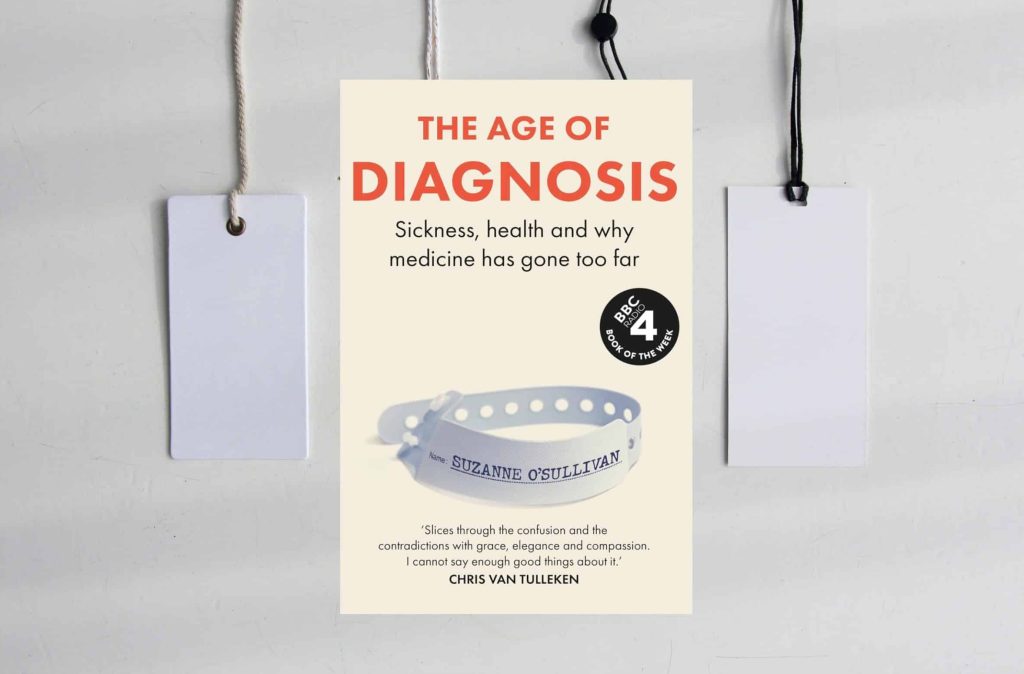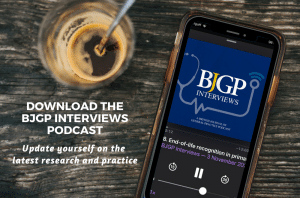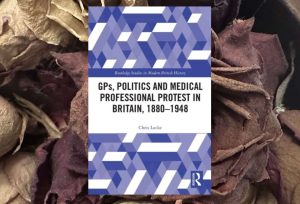O'Sullivan and others fail to recognise the likelihood that most Long Covid patients will have already tried psychological and behavioural approaches ... the idea that there might be issues that, if addressed, could cure you, is the only thing we have left.
There is much debate in media about whether specific conditions are illnesses, and whether or how they should be treated. Peter Toon considers how these debates inform why we define a condition as illness rather than another type of problem, and the
Taking a look at her consultation model feels like the least painful of her goals to try and get done, and so she takes hold of the flaking metal handrail, slowly breathes in and out to centre herself, and walks down the
Obesity and maintaining a healthy weight are more complicated than excess calories and a lack of exercise. Too often, we are at the mercy of a complex interplay between our genes, personal health matters, the food we eat, the behaviour of those
In this episode, we look back at the 2025 BJGP Research Conference.
"Many general practitioners consider spirituality to be relevant to their patients’ health and important to primary care. However, our research showed that a number of GPs worry that addressing this issue is unscientific." Alistair Appleby offers 4 approaches.
Using a combination of a candid personal memoir, philosophy and her expert knowledge of ancient Greek tragedy, Edith Hall discusses neglected topic of the consequences of suicide.
Diagnosis ... provides structure to a narrative of dysfunction, or a picture of disarray, and imposes official order, sorting out the real from the imagined, the valid from the feigned, the significant from the insignificant ... In Life and Times this month
With high infection rates and the prevalence of numerous demotivating influences on vaccine uptake, a programme which focusses on negating the controllable barrier of inaccessibility is essential, argue Paul McNamara and Scott Wylie.
Whereas discussions surrounding death and dying or discussions about sexuality are ordinarily recognised as a taboo, and approached as such, this is not the case for grief. This is precisely why it could be argued that this can even be regarded as
In this episode, we discuss diagnosis of vulval lichen sclerosus in general practice.
"It is March 2021. We’ve endured two lockdowns and a year of remote learning. We should be holding our Easter awayday for the GP registrars... but instead I am peering into my laptop. But in a miracle of communication, an artist on
"As a GP, I had many patients who told me how lucky they were to be so well in old age. My response was always the same — that they were not lucky but had looked after themselves, mainly by keeping very
"I am struck by how Eder pursued three passions – socialism, Zionism and psychoanalysis – that were all cutting edge causes for most progressive people in his time but have largely diverged from each other since then and become contested or marginalised."
In this episode, we discuss differential attainment in the MRCGP exams.
Yonder is a diverse selection of primary care relevant research stories from beyond the mainstream biomedical literature.
As Chris Locke demonstrates in his timely analysis of GPs, politics and the medical professional protest in Britain 1880-1948, GP's concerns about insufficient pay, workload, not being valued and fears that independence will be taken from them are not new.
This year's title is: “The GP model for delivery of Primary Care is outdated for the society in 2025” Find out how to enter!
"The Music and Mental Health Project [aims] to sensitise family physicians, other health professionals and managers, as well as patients and their families, to the transformative power of music as a tool for care in psychosocial suffering."
In this episode, we talk to Professor Helen Atherton about the increasing push for a digital-first approach in general practice.
Something shifted in my head, and I heard the sound of a penny dropping in a bank vault deep underground. I rummaged around in my desk for the Campbell-Frank Analyser and applied the scalp electrodes and mask with trembling hands.
Heidi, Annie, Tali, Suki, Lindy. These were the grammatically feminine names of electronic scribes being presented by a grid of entirely male CEOs or company representatives. Shier Ziser Dawood unmasks some Stepford Scribes.
Ponder this: The causal link between our actions and any outcome may be dubious, but the relief we feel at having done something, especially when there is an improvement of some kind, is so strongly reinforcing that we tend to ignore this.
Compassionate care helps us stay connected through our feelings and actions to the human aspect of medicine. And when that feeling is lost, it degrades our sense of who we are as clinicians. Nada Khan considers diagnoses and treatments for compassion fatigue.
We consider teaching medical ethics in conflict zones to be an act of solidarity and a profound commitment to addressing global health inequities. By nurturing ethical reasoning and fostering collaboration, initiatives like this play a crucial role in rebuilding resilient healthcare systems
In this episode, we talk to Dr Sam Merriel about PSA testing in asymptomatic men in general practice.
Worsening health inequality as an unintended consequence of trying to improve access must not be ignored. Sarah Burns weaves a cautionary tale.
"it was wonderful to attend the launch of Nicky Carter's first book of poetry, The Ghosts of A and E, in Liverpool a few weeks ago. Hearing them read by the author was a real privilege and took us all to those
Paul McNamara and Khalid Abdalla reflect on sauna therapy for the treatment of chronic disease.
In this episode, we talk to Dr Pete Edwards about effective safety netting practices.
As the net zero agenda gains prominence within the health sector, NICE guidelines are still not providing clinicians routinely with material to help decision making, argue Emma Radcliffe and Sophie von Heimendahl .
Three years of war have tested the very limits of Ukraine’s healthcare system. Yet, they have also revealed an extraordinary capacity for resilience, adaptation, and innovation. As the war continues, investing in primary care remains essential—not only for health but for hope.
The incidence of throat cancer, particularly oropharyngeal squamous cell carcinoma, is rising, with a worrying prevalence in the younger population. Callum Higgins and Paul McNamara examine the possible causes, and their implications.
"Edward Jenner remains the most famous GP in the UK and is still very relevant today. He had multiple talents; here, I focus on three: GP, scientist, and writer."
This challenges the notion that clinical interactions should be structured according to a strict division between diagnosing disease and understanding the patient’s broader illness experience.
In this episode, we talk to Professor Anne Slowther about use of ReSPECT forms for advanced care planning in general practice.
In the same way there is an unsettling parallel in the rise of obesity and ultra-processed food from the 1970’s onwards, the rise of faster and more invasive digital technology seems to link with a decline in mental health. Giles Dawnay discusses
"It raises timely questions regarding the concept on a 'use by' date to a life. It stirs in us the realisation that despite not having 'capacity' to make decisions about medical or financial affairs, a patient may nonetheless be immersed in a
If it is difficult to agree what exactly we mean by health, it is perhaps unsurprising that we also approach unhealth in a number of different ways. Ben Hoban reflects on the meanings of 'unhealth.'

































